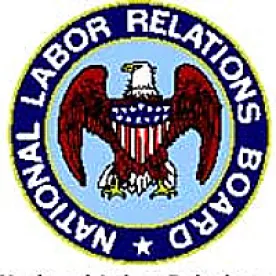Earlier this week, the General Counsel of the National Labor Relations Board (NLRB), Richard F. Griffin, authorized the issuance of multiple complaints which include allegations that a franchisor, McDonald's, USA, LLC, could be liable as a joint employer with its franchisees for violations of the National Labor Relations Act (NLRA). The text of the General Counsel's authorization is available here.
Since 2012, McDonald's, USA, LLC and its franchisees have been named in 181 unfair labor practice charges filed with the NLRB. In a memorandum issued to the Regional Directors, the General Counsel noted that 43 of those charges were found to have merit, while the remaining charges either were found to have no merit or are pending further investigation. The General Counsel's action authorizes the regions in which the charges were filed to issue administrative complaints naming McDonald’s USA, LLC and its franchisees as respondents if the parties are unable to reach settlement in the 43 cases that have been found to have merit.
The authorization comes on the heels of an amicus brief filed by the General Counsel in June in Browning-Ferris Industries of California, Inc., urging the Board to adopt a new standard for determining joint-employer status. Under the current standard, the NLRB analyzes whether alleged joint employers share the ability to control or co-determine the essential terms and conditions of employment. TLI, Inc., 271 NLRB 798 (1984). Essential terms and conditions of employment include hiring, firing, discipline, supervision and direction of employees. Laerco Transportation, 269 NLRB 324 (1984). The putative joint employers' control over these employment matters must be direct and immediate.
In the amicus brief, the General Counsel argued that the Board's current standard for determining joint-employer status is significantly narrower than the traditional standard and ignores Congress’s intent that the term "employer" be construed broadly. Griffin urged the Board to adopt a new standard that accounts for the totality of the circumstances, including how putative joint employers structure their commercial dealings. Under the proposed test, joint-employer status would exist if one of the entities wields sufficient influence over the working conditions of the other entity's employees such that meaningful bargaining could not occur in its absence.
The NLRB has not yet decided whether to adopt the General Counsel's proposed standard, and the Browning-Ferris case is currently pending before the Board.
Implications and Recommendations
Although the General Counsel's action has sparked a flurry of debate over the proper test for determining joint-employer status, it remains unclear whether the NLRB will accept his position. If the NLRB decides to adopt a new joint-employer standard, it would likely expand the number of entities found to be joint employers and thus potentially liable for alleged unfair labor practices, and could have ramifications under other employment laws as well, including wage and hour and discrimination cases.


 />i
/>i

